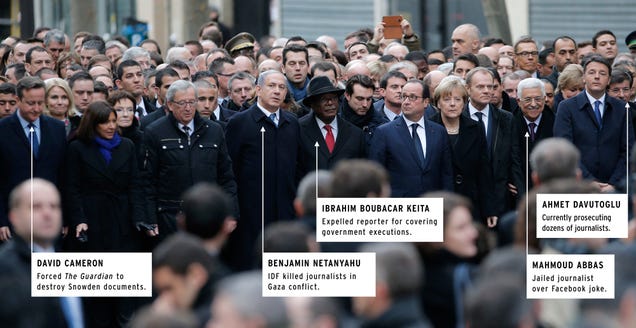
Hi there. We're trying something new out for the new year, which means Gawker's going to be publishing things a little differently. Let me explain.
Starting today, Gawker.com is going to slow down. Don't worry—as an editorial operation, we'll still be producing as much writing as we did before (probably even more). We're just going to put less of it on the front page.
Instead of publishing the majority of our stories directly to the front page, we'll be publishing them on to a set of subject-focused sub-blogs (a.k.a. "verticals," or, cutely, "diagonals"—I personally prefer to just borrow newspaper terminology wholesale and call them "sections"). Some of them—Valleywag, Defamer, Morning After—already exist. Others—focused on media, news, and politics—we've created.
The front page will update less frequently than it did before, and it will feel a bit more like the front page of a newspaper, with the best, most important, and most representative work from across the sections. At best that will mean exclusive stories, original reporting, strong arguments, funny jokes, breakout posts, and breaking news: The best and most popular of what Gawker is producing at any given moment.
What does this mean for you?
For a lot of our readers, who come to Gawker through links on Facebook and Twitter (or in their email or IMs), this won't mean much of a change except a slightly different URL and logo.
For those of you who visit Gawker.com directly but infrequently, the change should be a good thing. Instead of our former posting schedule pushing articles down the page faster than anyone could keep up, the stories we're proudest of and happiest with will get their time to shine.
For those of you who visit Gawker.com several times an hour (and thank god for you), you can change your Gawker bookmark to http://newsfeed.gawker.com, where the imaginatively named Gawker Newsfeed will deliver to you everything being posted to every section.
If you read Gawker with an RSS reader like Feedly or Feedbin, switch your feed to newsfeed.gawker.com/rss .
Most excitingly to me, the new structure should allow for a lot more flexibility and personalization for readers. If you come to Gawker for entertainment gossip and celebrity news, but hate our Silicon Valley coverage, you can now just bookmark http://defamer.gawker.com and only check Defamer. If you love our criminal justice stuff, but don't want to read about viral videos, you can stick to http://justice.gawker.com, our newly launched blog for politics, justice, labor, and inequality.
What sections can I read, and which new ones are you launching?
Five of them already exist:
Valleywag: Silicon Valley news and gossip
Defamer: Hollywood gossip, entertainment news, movie coverage
Domesticity: Home, lifestyle, parenting
Morning After: Everything TV
Gawker Review of Books: Books and everything that's in books
And we're launching another five to create homes the rest of the kinds of stories that we cover:
True Stories: First-person accounts of real-life events
TKTK: Media news and power gossip
Justice: Politics, justice, labor, inequality
Internet: Internet culture, cybersecurity, dark web dealings (formerly "Weird Internet")
Newsfeed: The news feed, in addition to sharing posts from the other nine sites, will be the home for breaking news and viral video.
"TKTK" should be taken literally: We're still in the process of naming and designing logos for the new sections. (If you have any suggestions, drop me a line.) As they develop independent voices, and as we think of good names, we'll give them more specific identities; for now, we're using generic names to get readers used to the idea.
In addition to the ten broad sections, we'll also be maintaining our regular collection of personal, subject-focused blogs:
The Vane: Dennis Mersereau's home for weather and weather media reporting
Fortress America: Adam Weinstein's security and politics blog
Dog: A dog, with a blog
Sausage: Behind the scenes in the Gawker editorial process, such as it exists
Antiviral: Jay Hathaway debunking, hoax-busting, and fact finding the worst of the viral web.
If this seems like too much to keep track of individually, don't forget: If you want everything, you can just check out http://newsfeed.gawker.com.
Why are you doing this?
For a detailed explanation, you can read a memo about Gawker 2015 here
It'll be messy, a lot of our most dedicated readers might hate it, and traffic will take a hit. But I think that we'll be rewarded in the long run by providing readers with more focused ways to get the stories they want, and by giving writers more freedom to experiment without "front page" pressure.
Questions? Comments? Concerns? I'll try to hang out here below to post to address any worries, and I'm also available at max@gawker.com.

























